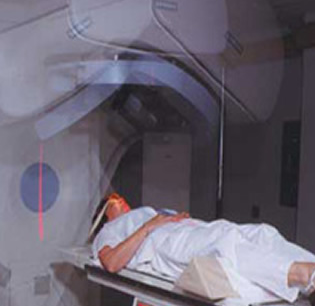
May 23, 2011 – According to a report, radiation medicine promises to be an even more effective weapon in the battle against cancer and may ultimately prove to be useful in chronic pain and neurodegenerative disorders. The report is a compendium of the 2011 Future of Radiation Medicine symposium, sponsored by Elekta. During the symposium, leading researchers and clinicians discussed how the field of radiation medicine is rapidly changing.
In the past two decades, significant advances have been made in radiation medicine with the introduction of computers, robotics and imaging systems. These tools help to sculpt radiation therapy to the precise dimensions of tumors, therefore increasing accuracy and limiting radiation exposure to surrounding healthy tissues. Nearly two-thirds of all cancer patients will receive radiation therapy during their illness.
"In the future, radiation therapy for cancer will be significantly different than today's treatments, simply because current outcomes are unsatisfactory to patients," said Robert D. Timmerman, M.D., professor and vice chair of radiation oncology at the University of Texas Southwestern Medical Center. "Patients expect that we are actively changing to improve radiation therapy treatment."
For example, Timmerman predicted that conventional radiation therapy, which requires six to eight weeks of daily treatments at much lower doses, will largely be replaced by hypofractionated radiation therapy, which delivers very potent, focused beams of radiation to tumors in five or fewer outpatient sessions of less than 30-60 minutes each. Hypofractionated radiation therapy might also offer a new way to improve survival in properly selected patients with emphysema by selectively causing scarring, or fibrosis, that allows more efficient breathing.
Dheerendra Prasad, M.D., director and associate professor of radiation and neurosurgery at Roswell Park Cancer Institute, said the increased desire of patients to enhance quality of life during brain cancer therapy will lead to widespread use of hypofractionated radiation to specifically target brain tumors – rather than irradiating the entire brain – to save normal brain tissue and preserve brain functions such as memory and fine motor control.
With these same advances in targeted radiation therapy, some radiation oncologists are beginning to deliver the entire course of radiation at the time of breast cancer surgery, which is the most efficient delivery of care.
For more information: www.elekta.com/future


 August 09, 2024
August 09, 2024 








